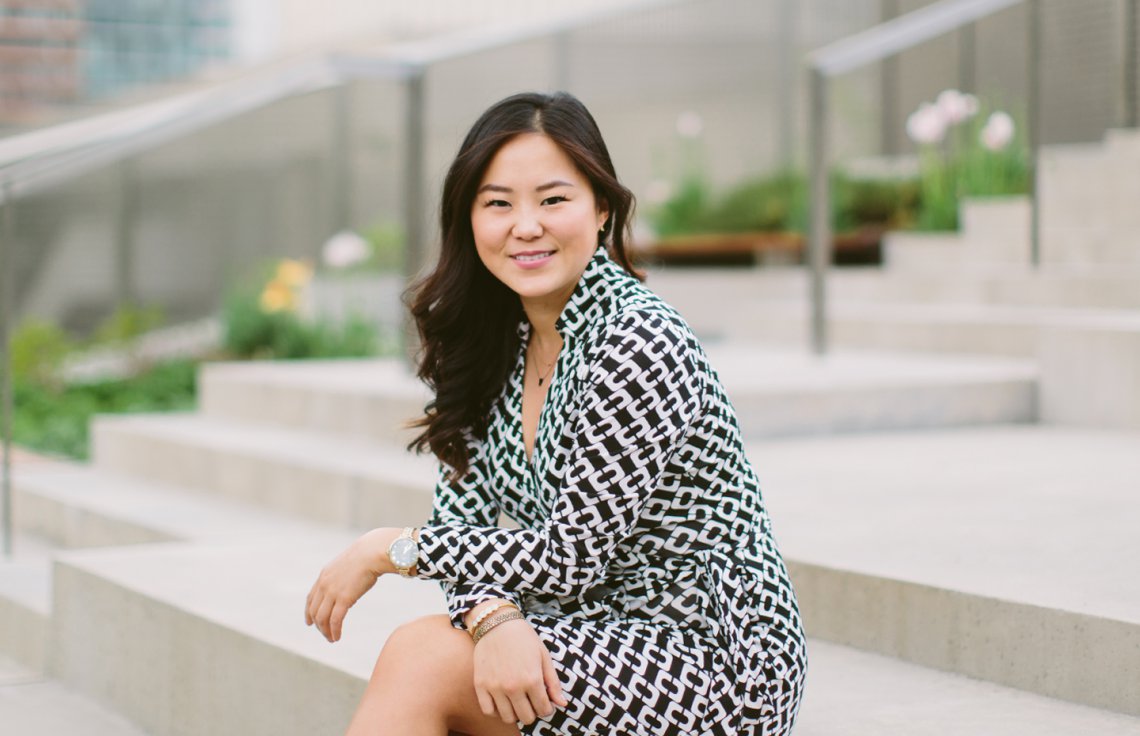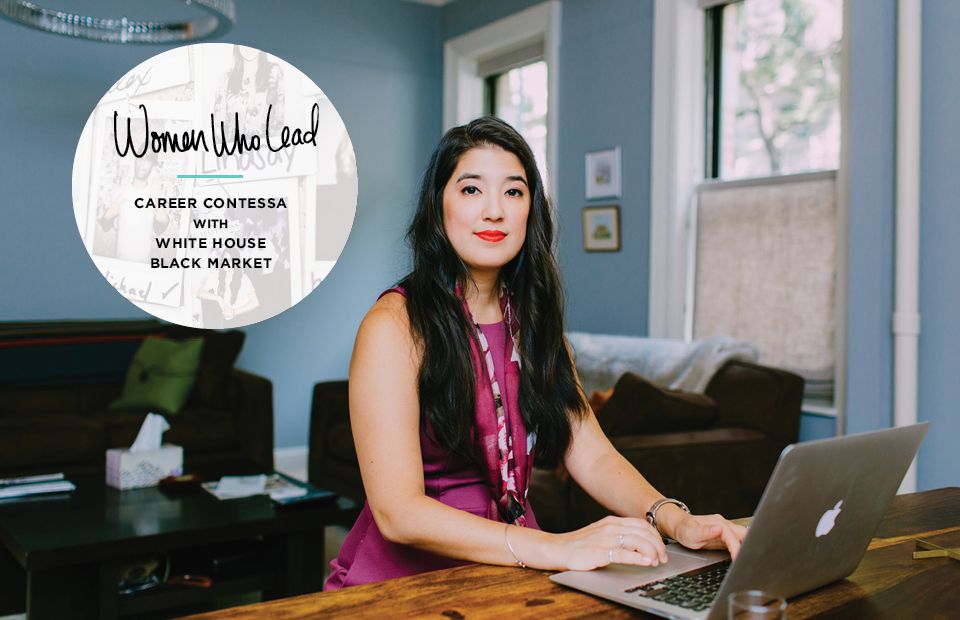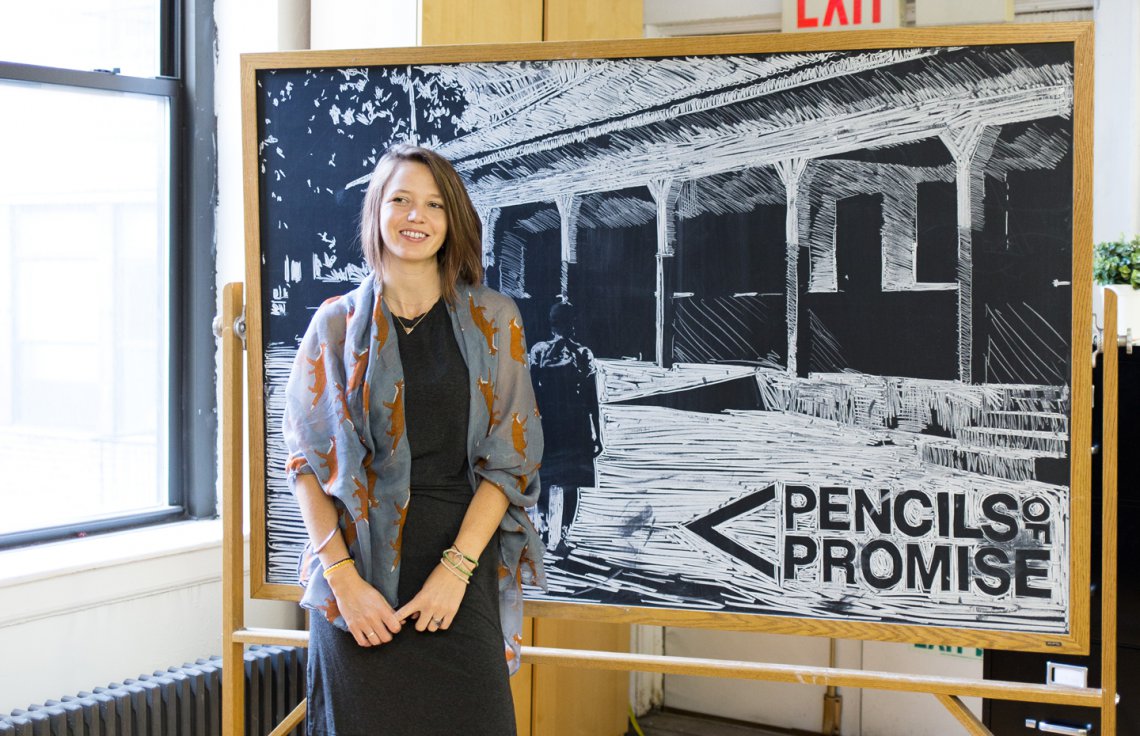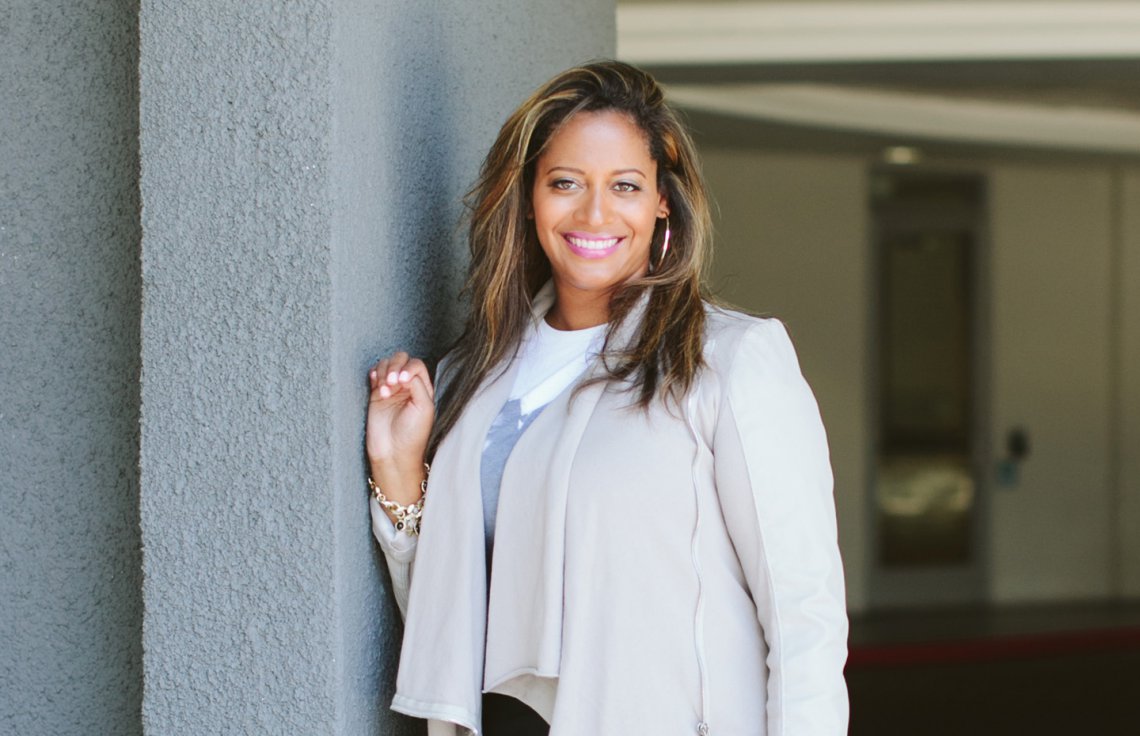“Curiosity fuels the spirit” has long been a motto used to describe the career path of Lisa Dougan. Today, Lisa, 29, is the Director of Civic Engagement at Invisible Children and an established human rights activist. Working for the nonprofit organization, which is working to stop atrocities committed in Uganda and central Africa, Lisa has used her curiosity to awaken the spirit and compassion in students, politicians and former child soldiers.
Lisa’s start as a “roadie” gave her the opportunity to bring attention and education to the American public about the indescribable brutality being committed in Africa. However, it was a research trip to Uganda that pushed her to commit her career to helping others.
It’s Lisa’s own compassion that compels the naysayers, the critics and the disbelievers to be curious enough to investigate the world around them and to understand the power of the human spirit. With a job that is both humbling and motivating, Lisa offers great insight into the importance of telling a story, embracing even the smallest of victories and uncovering where the foundation of political advocacy lies
Her Starting Point
Tell us about your first post-grad job. How did you get your foot in the door?
My first paid job out of college was actually an entry-level staff position with Invisible Children. After a year-long unpaid internship with the organization, I was asked to come on staff and join a team that would oversee Invisible Children’s efforts to educate and mobilize young Americans to help bring an end to the violent 20-year-long rebel conflict plaguing innocent families and children in central Africa.
Did you know what direction you wanted to take your career post-graduation? How did you discover your passion for non-profit work?
I didn’t have a specific long-term career goal after graduating, but I had a clear desire to work in a field that enabled me to support individuals and groups that are marginalized, oppressed and overlooked. Even now, I’m still discovering and refining my understanding of how I’m gifted and wired to best serve people.
How did you get involved with Invisible Children? What role did you start with?
In February of 2006 during my last semester at college, I watched the organization’s first documentary about a violence rebel group called the Lord’s Resistance Army (LRA). The LRA is notorious for abducting children as young as 5 or 6 years old and conscripting them as soldiers or sex slaves. The story of children suffering through this rebel conflict profoundly impacted me and really consumed my life from that point on.
I started volunteering for the organization as I finished up my last semester of school, and upon graduating, I was offered a 1-year internship. I packed up what I could fit into my Hyundai Sonata, drove across the country to California and spent the next several months representing Invisible Children as a “roadie.” I traveled the country in a van with three teammates (who I had just met!), showing Invisible Children films to other young people like me, inviting them to be a part of the story seeking justice for these children.
Following my internship, but before I joined the staff of Invisible Children, I managed to squeeze in a four-month research trip to northern Uganda. After that trip, I served as a National Tour Coordinator at Invisible Children for about 3 years before moving to Washington, D.C. and taking a position as Director of Field Outreach for a partner organization called The Resolve. After 3 years with The Resolve, I transitioned back to Invisible Children and now serve as their Director of Civic Engagement.
As part of your work with Invisible Children, you traveled to Northern Uganda and many other places. What effect does traveling and seeing things first-hand have on you and your work? Do you think travel is a must-do for aspiring non-profit workers?
I am certainly grateful for the opportunities I have had to travel, both to Africa and around the United States. I think one of the richest take-aways was my exposure to the hard work and resilience of local community leaders in LRA-affected communities. These courageous individuals are consideredactivists, which puts into healthy perspective my work as an “activist”—safe and secure in my air-conditioned Washington, D.C. office. Traveling can expose you to the incredible courage, brilliance and strength of local activists who are seeking justice, while also living in the midst of suffering. It can be both humbling and incredibly motivating.
You’ve also traveled across the country in an RV to share your experience and ask people to take action. How did you engage communities? What’s the most difficult part of asking for community support?
One thing the leadership of Invisible Children has always understood—and what I learned from my time on the road—is the power of a story. And as a mobilizer of people, it’s important to understand and embrace the power of your own story.
I have found that, when sharing about the LRA conflict with a room full of people, the strongest bridge between a tragic, far-away rebel conflict and a 17-year-old student sitting in the audience was my story. In sharing my own journey of discovery and response to this horrible injustice, I have made the concept of “taking action” accessible to that 17-year-old. And in some unspoken way, I’ve almost given her permission to respond to what she has learned.
Before taking on your current role at Invisible Children, you did Field Outreach for Resolve. Tell us more about that role. How did that experience help with your current gig?
My 3 years as Director of Field Outreach at Resolve were very formative for me. I had to learn the political ropes of Washington, D.C as I went, which is probably the best way to really learn anything. That experience not only helped me understand the nuts and bolts of how to influence U.S. policy, but it also opened my eyes to why political advocacy is so important, and truly foundational, to the work of justice. I have developed a stronger, deeper conviction that, in order to be people of true compassion, we must confront and mend the broken systems that treat some lives as less valuable or less worthy of defending than others.
Have you always had an interest in politics? What is it like to work with government officials when you’re not one?
I can’t say that I’ve always had an interest in politics, though I was surrounded by it having grown up just outside of D.C. But I’ve always been someone who wanted to be “an expert” on things that interest me. So I think my desire to understand the nuances of the LRA conflict, and how to effectively address it, led me to politics almost by accident.
As far as working with government officials, I have to say that I think I’ve become less cynical and judgmental of politicians. I’ve come to realize that there are a lot of good people in this city who came to Washington with a sincere desire to serve the public. But “the system” is so stubborn and difficult that it can run you into the ground. I’ve come to realize that change is often going to happen in small, incremental victories.
Her Big Break
Tell us about your daily duties and responsibilities as the Director of Civic Engagement? How much time do you spend traveling?
Truth be told, much of my day is spent behind a computer, emailing Congressional staff or drafting documents to help activists effectively lobby their members of Congress. Also, because I work remotely and the rest of my team is in San Diego, my day is peppered with phone calls or Skype conversations with my political advocacy team and other colleagues at Invisible Children. Some days will include meetings on Capitol Hill with Congressional offices or with administration officials. Several times a year, I’ll also do some traveling—either to the Invisible Children headquarters in San Diego, to an important Congressional district to meet with activists or to central Africa to meet with local community leaders.
What’s the most challenging part of your job and why?
I would say one of the biggest challenges of my current role is embracing my own shortcomings. It can be unnerving to work in a city like Washington, filled with so many experts. This is a city that breeds the expectation and pressure to have all of your ducks in a row and to be an expert in whatever you do. It’s a culture that can cultivate a lot of insecurity and self-doubt, which can also lead to inauthenticity. I have to constantly remind myself that my self worth is not in my job performance, and I must embrace my lack of expertise when it’s exposed. But I’ve actually found that by being honest that I am still learning, it creates a safe and inviting space for others to let down their guard and do the same—something I believe a lot of people in this city are hungry for, whether they know it or not.
Her Perspective
Working for a non-profit is tough. How do you stay motivated?
Listening to people’s stories reinvigorates me. That includes stories of young activists here in the U.S. who bravely decide to lead their very first lobby meeting and discover the power of their voices, or the story of the family in northeastern DR Congo that loses their father to LRA violence and struggles to move forward one day at a time. Stories reconnect my heart to the core of this work and drive me forward.
What skills are essential to work for a non-profit? Do you think it’s important career-wise to have a niche?
Doing good non-profit work requires critical thinking and adaptability. It also requires a lot of listening. I’ve seen too many organizations—well-intended ones—that move forward with plans to “help people,” without doing much listening to the people they intend to help, and without asking thoughtful, tough questions along the way to ensure that the work is actually benefitting the community. I think non-profit leaders and workers who are doing the best work out there are the ones who are quick to listen, who are constantly asking thoughtful, critical questions and who are ready to change and adapt.
What has been your top career highlight?
In 2010, I had the opportunity to lead a group of about 150 student activists from around the country who gathered in Oklahoma City to camp out in front of the local office of an Oklahoma Senator. This particular Senator was single-handedly preventing the passage of a bill that Invisible Children and The Resolve activists had been trying to get passed for almost a year; it was a bill that would bring huge strides in the effort to see an end to the violence of the LRA against families in central Africa. These 150 students and I camped out in front of the Senator’s office for 10 nights and 11 days, in freezing temperatures. We brought a lot of local media attention to the issue and received a lot of support from the local community. Finally, after 11 days, the Senator agreed to a compromise and allowed the bill to pass. That whole experience was inexplicably beautiful. I believe it is still one of the best highlights of my career thus far.
Many women find it hard to translate their passions into a successful and fruitful career. What advice would give women who struggle with this? How were you able to find your happy medium?
First of all, non-profit organizations often hire from their volunteer/intern pool, so try to take advantage of internship opportunities and work your way up the ladder. But beyond that, more and more, I’m learning to embrace the idea that it’s ok to zig-zag your way to the career (and life) that is right for you. So many of us put pressure on ourselves to immediately identify and secure “the job” right out of college—or before we turn 30. I don’t believe that this kind of pressure is rooted in truth.
Over time, if you create some space in your life to reflect and listen to yourself and others who you trust, you’ll discover more and more of who you are, what you love, how you’re wired and when you’re in your element. And it’s totally ok to zig-zag your way to the job that fits you well and makes you come alive.
You May Also Like

Government + Public Policy
How to Become a Foreign Service Officer
Ever wondered what it would be like to work in Foreign Affairs? Gloria Chou knows, and she's spilling.

Government + Public Policy
Noor Elkhaldi on Taking a Break From School to Work as an SVU Counselor
"You cannot care for others if you do not care for yourself."

Consumer Services, Education, Finance
Women Who Lead: Alexandra Dickinson, Founder and CEO of Ask For It
On taking risks and asking for more—always.

Nonprofit, Social Responsibility
Leslie Engle Young on What a Director of Impact Actually Does
This philanthropic globetrotter found her dream career working at Pencils of Promise.

Entertainment, Government + Public Policy
Meet the Woman Behind Your Favorite T.V.
See how Candace's legal background has helped her climb the ladder to a director role at Sony Pictures.

Government + Public Policy
This Millennial Entrepreneur Talks Politics, Activism, and...How to Vote?
Election season's almost over, but Maria Yuan's company, IssueVoter, is just getting started.
Get the Best Career Advice Delivered To Your Inbox
Join our newsletter to stay in the loop.
